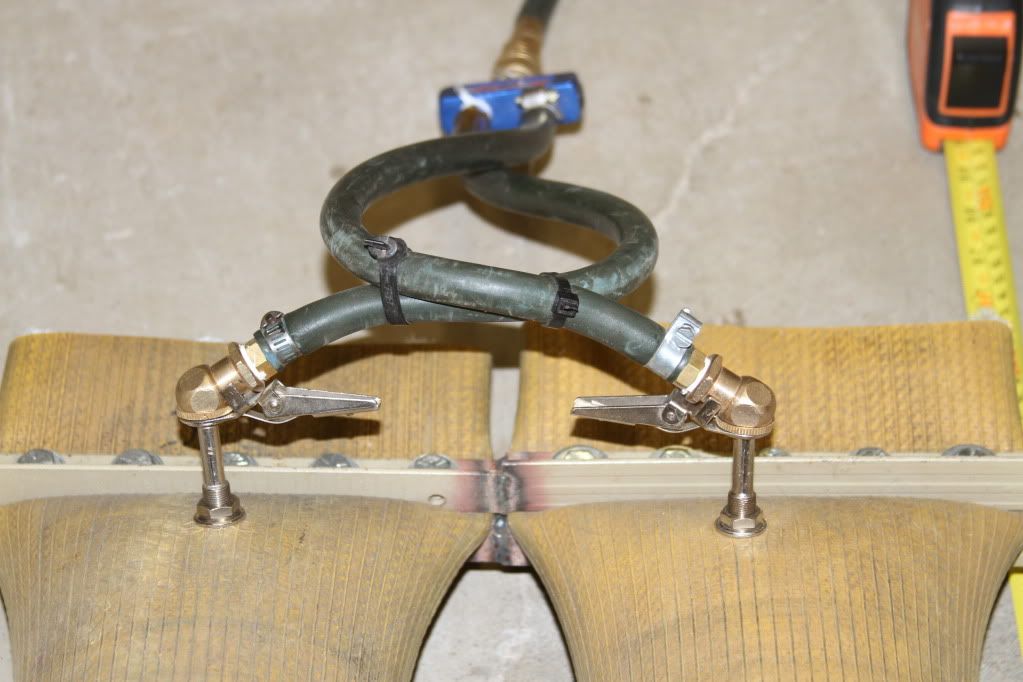inflating the fire hose
Moderators: Head Monkey, kelvin, bigKam, skidesmond, chrismp
-
nzskibunny
- Posts: 6
- Joined: Thu Jun 27, 2013 10:22 pm
- Location: new zealand
inflating the fire hose
hi guys.
as i am building my ski press, i want to try and keep cost down.
i don't have a workshop air compressor (i will buy one if i have to though), but i was wandering weather it is possible to use a valve similar to that on a car tire, and just inflate your fire hose with a smaller car tire compressor at the start, and just leave it. Instead of keeping a workshop compressor running the whole time you are pressing.
is this possible or is it just going to loose pressure or something.
thanks
as i am building my ski press, i want to try and keep cost down.
i don't have a workshop air compressor (i will buy one if i have to though), but i was wandering weather it is possible to use a valve similar to that on a car tire, and just inflate your fire hose with a smaller car tire compressor at the start, and just leave it. Instead of keeping a workshop compressor running the whole time you are pressing.
is this possible or is it just going to loose pressure or something.
thanks
-
nzskibunny
- Posts: 6
- Joined: Thu Jun 27, 2013 10:22 pm
- Location: new zealand
Personally, I don't see why, if you have a totally airtight system, a small car tyre compressor wouldn't work. You don't need 8-10 bars of pressure, everyone's pressing at under car tyre pressure anyway.
The the advantages a big compressor brings are:
- near-instant inflation, due to the big reservoir of high-pressure air
- the ability to separately regulate reservoir and output pressure, meaning your reservoir can 'trickle' air to your press independently of the compressor itself running
- higher airflow (upwards of 5cfm even for a "cheap" compressor vs under 1cfm for a tyre compressor)
- the ability to run your compressor near-continuously for hours.
It's the second (and possibly the third) of the above that make using a small compressor hard in the presence of a leaky system (and you *will* have leaks). However, with a pressure activated switch in the system to turn your compressor on and off, you should be able to get away with it unless you're leaking more air than the compressor itself can supply. A pressure switch intended for compressors will set you back about 15 bucks.
The the advantages a big compressor brings are:
- near-instant inflation, due to the big reservoir of high-pressure air
- the ability to separately regulate reservoir and output pressure, meaning your reservoir can 'trickle' air to your press independently of the compressor itself running
- higher airflow (upwards of 5cfm even for a "cheap" compressor vs under 1cfm for a tyre compressor)
- the ability to run your compressor near-continuously for hours.
It's the second (and possibly the third) of the above that make using a small compressor hard in the presence of a leaky system (and you *will* have leaks). However, with a pressure activated switch in the system to turn your compressor on and off, you should be able to get away with it unless you're leaking more air than the compressor itself can supply. A pressure switch intended for compressors will set you back about 15 bucks.
- MontuckyMadman
- Posts: 2395
- Joined: Fri Jun 20, 2008 9:41 pm
-
knightsofnii
- Posts: 1148
- Joined: Tue Jan 08, 2008 6:02 am
- Location: NJ USA
- Contact:
-
twizzstyle
- Posts: 2207
- Joined: Tue Mar 07, 2006 8:25 pm
- Location: Kenmore, Wa USA
What they said. None of us leave a compressor running, you want your hose to be leak-free so once it's inflated, it stays that way. I have a big 60 gallon compressor now, but prior to that I just had a tiny pancake compressor. Those are cheap. A car tire compressor would work, but it would take a long time to inflate. You might not want that if you have epoxy that is starting to kick.



